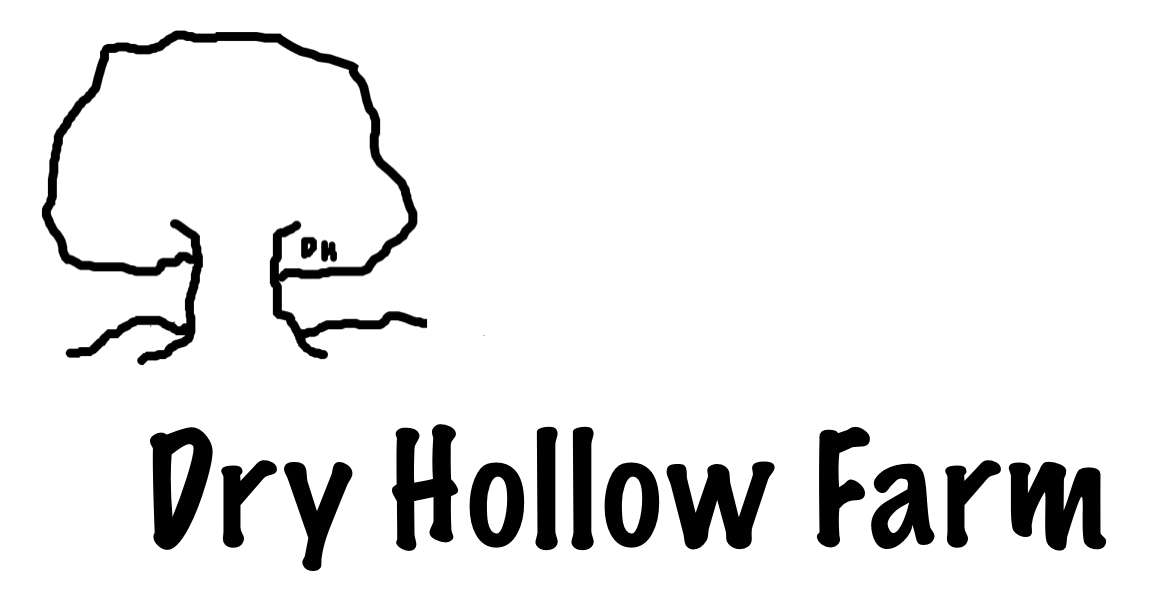The First 48
Over the past two weeks, we have welcomed more than a dozen kids and lambs to Dry Hollow Farm. More will soon arrive. Throughout the day and evening, we stay busy checking our barn and pastures for newborns and their mothers.
For every birth, the first 48 hours are crucial and require extra attention on our part to make certain the little ones are thriving. Unfortunately we have learned from experience how many things can go wrong …
#1
If a mother is going to abandon her offspring, she will do it immediately.
We have watched a ewe drop a lamb mid-stride, then continue walking without a glance backward. If not standing there at the exact moment (a lucky occurrence), we later would have discovered a deceased fetus with amniotic sac unbroken. It happens.
#2
Just because a newborn appears to be nursing does not mean it is ingesting colostrum or milk.
One kidding season we checked our newborns early morning and discovered a set of two-day-old twins had passed away in the night. It was perplexing as we had watched them latch on to their mother, tails wagging, while she stood still and kept them close to her side. Then we checked the birthing doe. She had little to no milk production. She was mostly dry, a frustrating oversight on our part.
#3
Sometimes the best mothers are thieves.
One early morning before dawn we had a doe give birth to twins outside of our regular kidding season. A second doe, one of our best mothers and milkers, stole the newborn immediately. When we walked through the pasture that morning, each doe had one child. The problem? The thieving doe had no milk, and by this time, the birth mother refused to accept the twin because she did not recognize it as her own. This little one became a bottle baby.
#4
A mother may not recognize she has given birth to more than one.
When a doe or ewe gives birth to multiples, she may be so entranced with her firstborn (cleaning and bonding) that she neglects to break the sacs and clean the others. One of our best does gave birth to triplets recently. Fortunately we were on-hand to break sacs and suction mouths and noses from numbers 2 and 3. Maybe she would have turned her attention to them eventually? We did not want to take the chance. However, we did not clean them, only made certain they were breathing before pushing them next to her. Eventually she cleaned all three and accepted each.
#5
Just because we cannot find a newborn does not mean the mother is also clueless.
During lambing and kidding season, a significant portion of our time is spent searching for little ones and counting heads. A light panic ensues when the number count comes up short. However, does and ewes are adept at hiding their little ones and remembering their locations. We spend time searching for our own peace of mind, before giving up. When we return an hour later, the mama is standing with the little one(s) close beside her and a satisfied expression on her face. She knows she fooled us.
#6
You cannot check too often.
For us, the challenge of lambing and kidding season are the minimal hours of daylight. Although spring is approaching, darkness falls early and sunrise occurs long after our first barn check. Keep strong flashlights on hand! Our current favorite is a car mechanic’s light with USB charging port.
#7
An energetic newborn is a healthy newborn.
How do we know we have a healthy kid or lamb after 48 hours? He or she is jumping, running, following mom through the pasture, and is hard for us to catch. High energy means good health. Lethargy signals a problem. Several times a day, we spend time standing among the flock, watching each little one carefully. Trust what you see.
Dr. Kathryn Bush owns and operates Dry Hollow Farm, a working goat and sheep farm in Huntingdon, Tennessee. Together with her husband, Russell, she creates skincare products from their fresh goat milk, grows organic herbs, welcomes visitors to their two cabins on the farm (available for stays through Airbnb), keeps the farm’s on-site soap shop stocked with their handcrafted products, and enjoys working the farm in company with their Great Pyrenees dogs (who work hard guarding the animals). Check out their natural products featuring farm-grown ingredients here, and sign up for the Dry Hollow Farm newsletter to stay in touch and be the first to hear about farm news, events, and new products.
